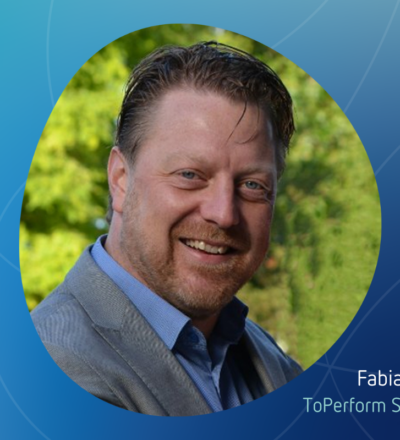Meet Fabian Compagner, the managing director at ToPerform Smart Solutions. A Dutch company that strives to put an end to energy waste. By using AI, energy consumption can be reduced and costs can be lowered. In this article, Fabian takes us through his journey at ToPerform and the collaboration with ISPT.
Name: Fabian Compagner
Function: Managing Director
Organization: ToPerform Smart Solutions B.V.
Works together with ISPT on: innovation in various projects and programs
Why do you think it is important to contribute to the Climate Goals with your work?
“There is no planet B. We have to do it with this world. At ToPerform Smart Solutions, we believe that in addition to alternative energy sources and new production methods, we can also learn from and optimize our current processes. However, in current processes, information is not always visible or available yet, so it is not always possible to optimize them. Take for example contamination in a heat exchange. Contamination results in reduced heat transfer and thus energy loss. Besides, cleaning is carried out at a predetermined time without checking whether it is really the optimum time. This automatically leads to a loss of valuable production time. Energy savings and cost efficiency thus go hand in hand.”
What problem must be solved in order to accelerate?
“The most important thing is to show decisiveness and to do this collectively. Meaning producers, suppliers and the government have to work together. Sharing knowledge and innovative solutions are paramount! With the current technologies, especially in the field of artificial intelligence, it is possible to quickly test in business situations whether solutions work. Ideas must be put into practice as quickly as possible. This requires a lot of trust in each other and in the technology.”
What do you see as the biggest opportunity for innovations?
“The greatest opportunity (and strength) will lie in the fact that innovations should not only contribute to the objectives of the Climate Agreement, but also to the growth of companies. This will create a win-win that will accelerate the achievement of these objectives. Creating urgency is essential too. No more endlesss research, but short cycles of putting knowledge into practice with feedback from the industry.”
Tell us about your collaboration with ISPT?
“In 2019 I got in touch with ISPT through Peter de Jong about a frustration from my past. I couldn’t get over the fact that we were going to optimize the cleaning process without looking at where the contamination was coming from. With the rise of Industry 4.0, this is a theme that fits within ISPT and this is where the collaboration was born.”
Where will your company be in 2030?
“In 2030, we will have multiple digital solutions in the market that are based on the premise of contributing to climate goals but also increasing profitability. Besides being able to perform optimizations on the effect of pollution we also have other methods to efficiently convert raw materials to the desired end products.”
Our partners are of great value for our open innovation platform. In this series we proudly introduce some of them to you with a short interview about collaboration in the energy transition.
